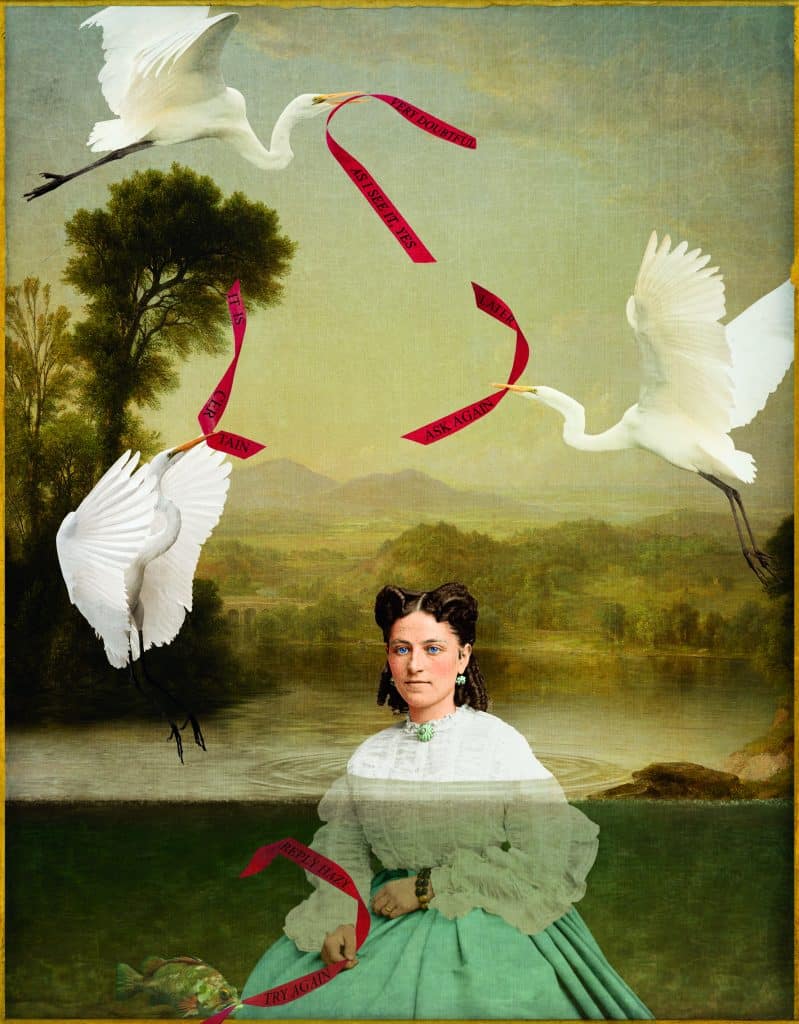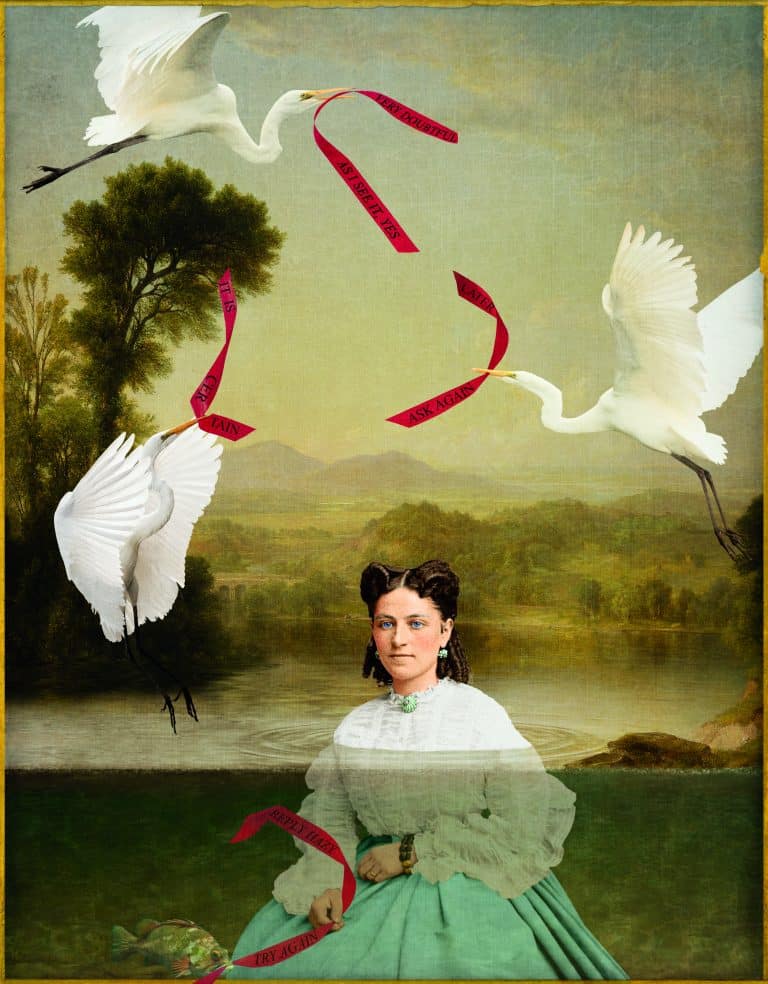I grew up believing that to love meant to submit, and that to submit meant giving up everything I thought, felt, or cared about that the he’s in my life did not. While I hope this was not how my teachers intended lessons to come across, what I assumed to be ‘gospel’ shaped my perceptions of my present relationships as well as my future relational aspirations. I learned that because God gave us everything, the only thing we could truly give back to Him[1] was our will. That submission of our own desires, then, was the ultimate reflection of love and devotion. I figured if that was true for heavenly beings, it must also be true for earthly ones. Reading Ella Enchanted showed me otherwise.
Gail Carson Levine’s magical tale is a classic Cinderella saga with a twist: Ella, the heroine, is cursed by an obedience spell. She must obey any command, even if it defies the very laws of nature, let alone the laws of her homeland Frell or her personal values. Ella tries her best to hide her “gift,” but some with nefarious intentions try to use it for their own advantage. As fairytales often necessitate, Ella meets a prince in the woods and, between escaping demise and discussing international relations, they fall in love. Ella keeps her curse a secret from Char, though he eventually demonstrates that he is not one to take advantage of her agency or lack thereof. This is made clear when he asks Ella to kiss him. Just before their lips meet, he pulls back and whispers that his request was not an order. With that admission, Ella is free from her curse’s mandates, at least for that moment, and she chooses to kiss him on her own accord.
This scene was vastly different than what I knew of men and God. In many ways, I felt like Ella, cursed to do whatever I was commanded, no matter how I felt or what I wanted. I even thought that there was nothing else to dream of wanting. But then there was Char, having every opportunity to take Ella’s submission for his own pleasure and choosing instead to give it back to her. I realized that it was the active returning, more than the passive giving to which I had resigned myself, that actually demonstrated true love. If Char didn’t choose to take Ella’s will for granted, then why would God demand mine? And didn’t Ella’s deliberate choice to engage demonstrate more love than her forced obedience would?
The submissive yeses that dictated every aspect of my life were never really yeses because I had not been allowed an alternative.
I didn’t understand why I loved this scene until years later when my therapist summarized Ella’s debacle and my deep appreciation for the book in one sentence: “Yes doesn’t mean yes unless you can also say no.” The submissive yeses that dictated every aspect of my life were never really yeses because I had not been allowed an alternative. Even if we assume that love demands submission, neither can exist without simultaneous agency and true freedom to utilize it.
In search of clarity, I turned to the scriptures, especially a commonly cited verse: “Wives, submit yourselves unto your own husbands, as it is fit in the Lord.”[2] We are also commanded to “Obey them that have rule over [us] and submit [our]selves,”[3] “submit [our]selves unto the elder,”[4] and “submit [our]selves therefore to God.”[5] My stomach churned. I had seen that the real-world application of these verses’ more originalist interpretations could have gut-wrenching effects. For many women like me, submission wasn’t being meek or teachable[6]. Instead, it was learning how to walk without making any noise because ‘he’ needed to focus on work and couldn’t do that if we stepped or even breathed incorrectly. It was pretending $20 was enough to cover the month’s groceries because we knew ‘he’ would rage although ‘he’ had spent the family budget on lavish hunting trips. It was also spending our graduation night listing a hundred reasons why we were stupid because ‘he’ was intimidated. Submission was not a virtue. Submission was survival.
It wasn’t until I noticed the “see also” section of the Bible dictionary that I realized there was another word for the concept I had been grappling with: subjection. In a chapter that is otherwise filled with praise for Christ’s mercy and love, Paul instructs Timothy to “Let the woman learn in silence with all subjection [and] … suffer not a woman to teach, nor to usurp authority over the man, but to be in silence.” My heart sank. Paul may as well have been my grandfather, who famously said that God’s greatest mistake was bestowing the gift of gab upon my grandmother, or my friend’s father, who maintained that his wife’s opinion was void because he held the priesthood. As disappointing as the verse was (and as much as it calls for an article all its own), within the framework of submission, I still felt hope. This clarification meant that my experiences with submission, whose mandate has far more canonical backing, were not true submission after all. Perhaps subjection was the real enemy.
At this point, I knew that submission was not saying “yes” when given no alternative; it was not acting out of fear or force. I also knew that submission was not subjugation, or being so unequal that one is not allowed a voice at all. What then was it? A new insight came when I was in college and turning in the most vulnerable academic essay I had ever written. As I waited for the file to upload, I was struck by the label on the button that I would soon click: “submit this assignment.” The word was the same, but it took on an entirely different meaning in that context. By completing my file submission, I was allowing my work — my thoughts, my heart, my spirit — to be seen. And in allowing my colleagues to see my draft, I was enabling a sense of connection and collaboration that would have been impossible had I hidden away my views. This kind of submitting allowed me to keep my voice and made me feel worthwhile and heard. Most poignantly, it helped me feel like more of myself, rather than less of it.
I recognize that allowing oneself to be seen requires a certain amount of safety, and when that is not present, being seen can feel more violating than liberating. I had been fortunate to find community in my courses, but it’s hard for me to say whether that safe space enabled or resulted from my essayistic submission. I suspect both aspects of progression were related to a theological reconstruction that was rapidly redefining my relationships. In tandem with the writing submission, I also found myself submitting my personality — from funny jokes and hidden laughs to likes and dislikes — to those around me. Where I had previously lived with roommates who never knew my full name, let alone my passions or goals or even favorite treats, I was starting to share those thoughts and experiences with those around me via baked goods, extremely bad karaoke, late-night conversations, and everything in between. But it wasn’t just about sharing me. Being seen also allowed me to see others more fully. My sharing was met with their sharing, our vulnerabilities interwoven until our spirits were knitted into something mutually stronger and softer. This mutual submitting enabled true empathy and charity. In other words, it enabled joy.
I’ve since wondered if this pleasure is one of the things that “God enjoys most about being God,”[7] seeing and relieving pain whenever it is possible and beneficial[8], rather than creating it as an abusive subjector would. I also find it interesting that a God whose “eyes … are in every place, beholding the evil and the good,”[9] who “seeth all [our] goings,”[10] and who “knoweth what things [we] have need of, before [we] ask him”[11] still wants us to “let [our] requests be made known,”[12] and promises that if we “ask, it shall be given unto [us].”[13]
The contrast between God’s knowing and our asking is perplexing. Perhaps there is something about His pure love that not only allows for, but is even built upon, us being safe enough to express our needs. I used to think this was because God got a kick out of watching us grovel, as though prayer were some sort of divinely orchestrated power trip. Now, I think He requests the asking for our sakes, rather than His. In submitting our heartfelt desires to Him, we allow Him to see our truest selves, and in that state of authenticity, perhaps we see His truest self — that of a merciful, caring parent who stands by to care and comfort us, even in our depraved states. The seeing — the submitting — then, is really mutual.
Since this shift in my view of divinity, I find myself increasingly drawn to the idea that “God is love.”[14] I had once reasoned that God is love because He is perfect and that ultimately He still loves us in spite of our imperfections because He is good, not because we are good. In short, I thought that “God was love” even though He saw us perfectly. Now, I wonder whether He is love because He sees us perfectly. This spirit of mutual openness just might be the highest form of submission and love I can fathom in Ella’s Frell, on Earth, or in heaven. ⋑
Sarah Lindsey is a graduate student studying the biology of childhood trauma.
NOTES [1] I struggled with pronouns for God in this essay. I often use male ones when discussing conflict, reflecting how earthly men influenced my perception of godhood. However, I also recognize many different conceptions of God and the godhead, including my own current understanding. I acknowledge and respect those different views and also cherish the idea of a feminine divine. [2] Colossians 3:18 [3] Hebrews 13:17 [4] 1 Peter 5:5 [5] James 4:7 [6] This is arguably still problematic in a husband/wife relationship, which I believe should be egalitarian, but that’s another essay for another time. [7] https://www.churchofjesuschrist.org/study/general-conference/2012/04/the-laborers-in-the-vineyard?lang=eng [8] Whether suffering is prudent is an entirely different discussion, which Viktor Frankl, C. S. Lewis, and philosophers through the ages who have agonized over the problem of evil, are particularly equipped to handle. If this topic intrigues or troubles you, as it does me, I also highly recommend The God Who Weeps by Fiona and Terryl Givens. [9] Proverbs 15:3 [10] Job 34:21 [11] Matthew 6:8 [12] Philippians 4:6 [13] Matthew 7:7 [14] 1 John 4:9

“She Subscribed to a Bird-brained Manner of Thinking”
I assemble my works digitally from photos of my ancestors (making occasional ancestor adoptions at thrift stores) and from my expanding archive of over 50,000 photos. It’s all about remix. I’m on a constant photographic scavenger hunt, outfitting ancestors with backdrops, sidekicks and belongings. I print my work myself in small editions on archival photo paper with pigment inks. My images are quirky visual narratives about psychological predicaments. I especially like a good plight. My art leans toward surrealism, as it has odd juxtapositions, non-sequiturs, and an element of surprise. My work content mirrors personal, political, and global situations — in a sly way. My work is a packrat’s nest of things that are deeply a part of being alive: humor, fear, rescucuriosity, individuality, absurdity.
Corinne Geertsen |@corinnegeertsen | corinnegeertsen.com




